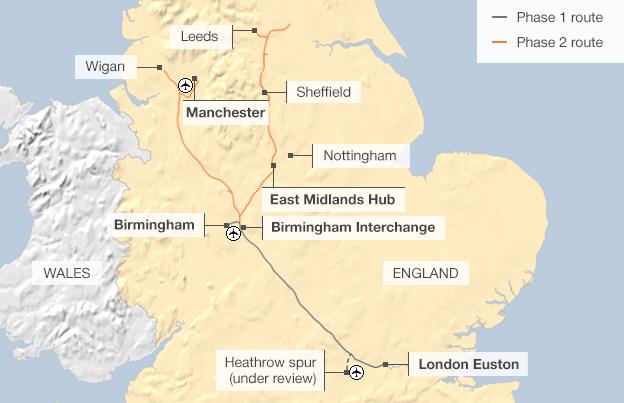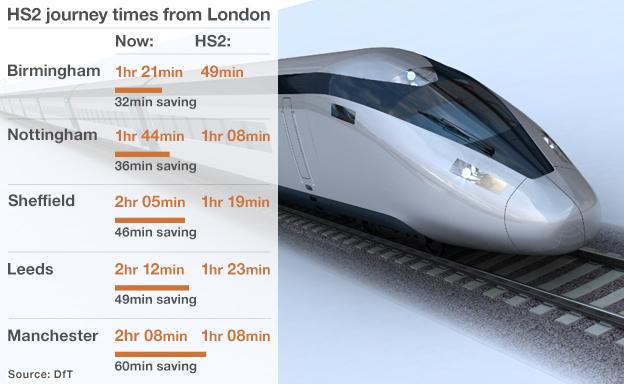HS2: Biggest ever bill goes before Parliament
- Published
The legislation allowing the government to build a high-speed rail line between London and Birmingham is to go before Parliament.
The HS2 bill and supporting material stretch to 49,814 pages in all.
The bill details, almost down to the last blade of grass, exactly what ministers would like to build.
The bulk of the bill is dedicated to the impact the first phase of HS2 will have on the environment.
This includes all those ancient woodlands and areas of scientific interest.
Hundreds of copies are being distributed along the route, both as hard copies and as files on computers, so that people can go into their local library or to their parish council and see exactly what's planned.

A special committee will be set up to hear from many of those who will be directly affected by the line. And, eventually, MPs will vote.
The current plan is to get it all done before the next general election in 2015. Many assume the deadline will slip because of the sheer scale of the project.
If MPs do pass the bill, it gives the government the power to start buying up houses and land regardless of whether the owner wants to sell. There's a long way to go before we will know for sure whether this controversial line will ever be built.
Right now, Labour shadow chancellor Ed Balls could hold the key. He has openly questioned whether it is worth £43bn, or £50bn including trains.
For now, the project still has vital, cross-party support, but, if that wavers, HS2 could be dropped.
Cost
The government's most recent business case for the HS2 high-speed rail link slightly lowered the amount of benefit it predicts relative to the cost.
The expected benefit-cost ratio has fallen to £2.30 from £2.50 in benefits for every pound spent.
That fall is mainly due to a £10bn rise in the scheme's projected £42.6bn cost, which was added earlier this year.
It also has revised an earlier assumption that business people do not get much work done on trains, a view that was widely criticised at the time.
A study, prepared by Network Rail and the management consultancy Atkins for the government, said that without the project, there would have to be 2,770 weekend closures on the East Coast, West Coast and Midland main lines to increase the capacity to cope with demand in the future.
This could lead to travel times between London and Leeds doubling.
